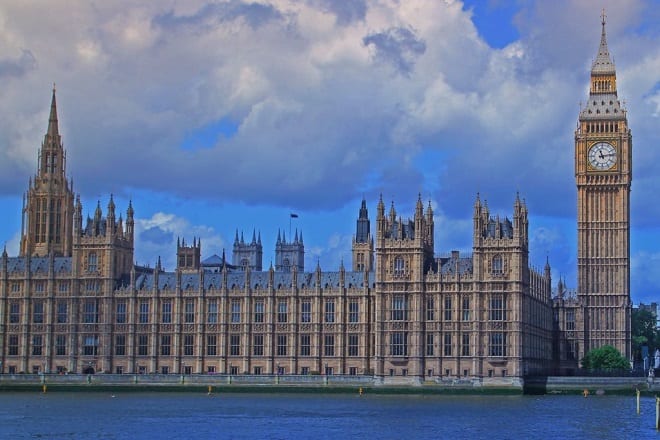
‘ CSJ Foundation set up to promote the unsung front-line charities of the pandemic and to help make their case in Whitehall
. New Foundation will also match philanthropists with front-line causes; half of Britain’s 160,000 plus charities have incomes of less than £10,000 a year and one in four of these closed their doors during lockdowns
More than 70,000 of Britain’s small, grassroots charities battling to escape the ravages of the pandemic have been thrown a lifeline by a leading Westminster-based think-tank.
The Centre for Social Justice (CSJ), founded by former Conservative leader Sir Iain Duncan Smith, has set up a new Foundation to promote their essential contribution, amplify their voice in the corridors of power, and help them recover by boosting their fund-raising efforts.
The move comes against the background of mounting evidence that the minnows of the charity world, invariably locally-based and in the frontline of the struggle against poverty and deprivation, have suffered badly during Covid-inspired lockdowns. In a recent CSJ poll, 60 per cent of people said that volunteer groups for helping the vulnerable were necessary for their community to thrive. But despite providing a range of essential services during the pandemic, many have seen their income plummet, their staff and volunteers fall away and the threat of temporary or permanent closure.
A survey by the Charity Commission found that 90 per cent of charities have been hit hard by Covid. The consequences have been wide-ranging and often severe, spanning service delivery, financial and staffing issues, as well as frustration and uncertainty.
One in four charities with annual incomes of less than £10,000 paused their activities completely during the first lockdown. Unlike their household name cousins, many tiny outfits have been unable to claim furlough money or other emergency funding from the Government to keep on their staff during lockdowns.
Charitable funding and influence in the UK are heavily skewed towards the London-based mega charities. Over 85 per cent of all charitable income goes to fewer than 5 per cent of charities.
Figures from the National Council of Voluntary Organisations (NCVO) reveal that some 97 per cent of charities have an annual income of less than £1 million, with almost half of charities having an income of less than £10,000.
This huge gulf has inspired the Centre for Social Justice to set up the CSJ Foundation, based on the belief that grassroots, local charities across the country have a wealth of knowledge and knowhow about the best way to prevent and address poverty. But these organisations are often unheard and underfunded. The new foundation will tackle the root causes of poverty by bringing the voices of local grassroots charities to national decision-makers on poverty, making the case for forgotten regions, showcasing their innovations and successes, and directing much-needed funding to small, poverty-fighting charities across the UK.
The CSJ Foundation will also make the case for forgotten regions, showcasing their innovations and successes, not just highlighting their problems. Local offices have been set up in the North West and East Midlands, with plans to also open in Scotland, the North East and East Anglia.
The new Foundation will be launched tonight at a special event in Westminster, featuring prominent political figures such as Nadhim Zahawi, Victoria Atkins, Alex Burghart, Robert Halfon, Robert Buckland, Matt Hancock, Stephen Timms, Carolyn Harris, and Tim Farron, and headlined by Sir Iain.
Tonight’s event will also celebrate the 2020 and 2021 Awards winners, who were not able to receive their awards in person due to pandemic restrictions.
Sir Iain Duncan Smith, Chairman of the Centre for Social Justice, said:
‘Back in 2003 I visited the Easterhouse Estate in Glasgow and was so inspired by the work being there that I founded the CSJ. Since when, we have looked to frontline organisations as the innovators in anti-povery programmes with real impact. Today, we have an alliance of 400 charities and the CSJ Foundation is the next step in our work to bring real life, proven impact, often way beyond the boundaries of the Westminster bubble, into the corridors of power.”
Andy Cook, Chief Executive of the Centre for Social Justice, said:
“Small, front-line charities are the unsung heroes of the pandemic, where some of the most effective poverty interventions are invented, but they have also been the hardest hit. Our aim is to bring their brilliance to the attention of Westminster policy makers, and along the way, provide a platform for philanthropists to identify and support their work.”
Steve Freer from Tempus Novo, winners of a 2019 CSJ Award, said:
“There is no doubt our partnership with the CSJ and winning the award has opened doors that have helped us to grow as an organisation, and this in turn has allowed us to lift more and more people out of poverty.”
Dettie Wallington, CEO of Exaireo Trust, said:
“Exaireo works with those needing housing. Our clients come with multiple complex problems often relating back to childhood traumas and abuse. Linking with the Alliance has provided us with opportunities to share our knowledge and the experiences of our clients with politicians, policy makers and the media.
“We have seen issues that we have raised result in changes to government policy. We have also been able to host influential news editors, allowing us to share stories, provide a tour of local estates to highlight some of the many needs in these locations and the resilience of the communities who live there.
“The CSJ has given us the platform to truly influence government; they provide a valuable voice for the many small charities who really understand the needs across the UK.”

| [donate]
| Help keep news FREE for our readersSupporting your local community newspaper/online news outlet is crucial now more than ever. If you believe in independent journalism,then consider making a valuable contribution by making a one-time or monthly donation. We operate in rural areas where providing unbiased news can be challenging. |



















